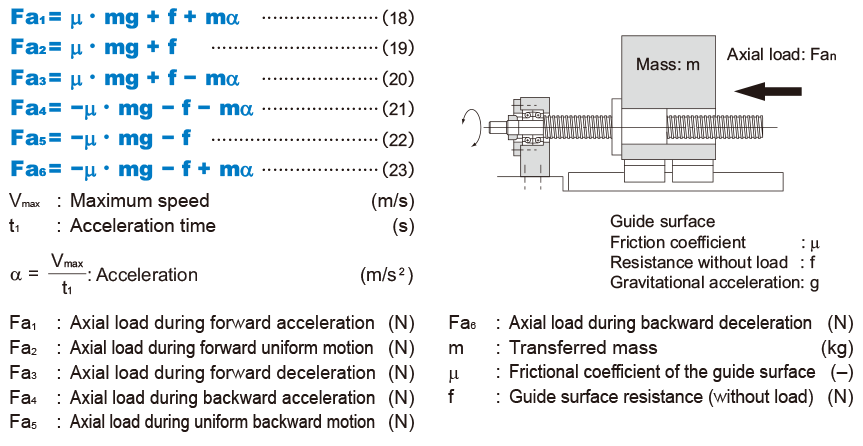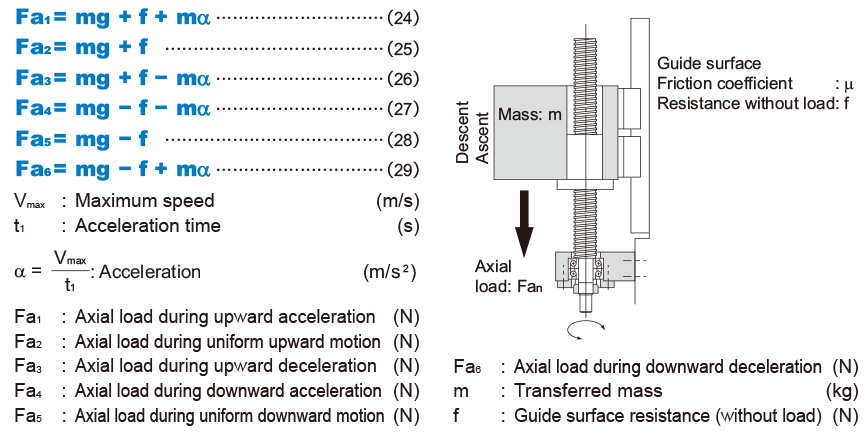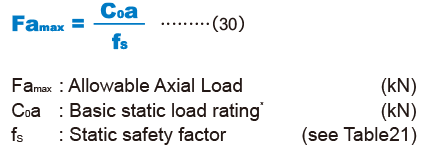Calculating the permissible axial load
In Horizontal Mount
With ordinary conveyance systems, the axial load (Fan) applied when horizontally reciprocating the work is obtained in the equation below.

In Vertical Mount
With ordinary conveyance systems, the axial load (Fan) applied when vertically reciprocating the work is obtained in the equation below.

Static Safety Factor
The basic static load rating (C0a) generally equals to the permissible axial load of a Ball Screw.
Depending on the conditions, it is necessary to take into account the following static safety factor against the calculated load. When the Ball Screw is stationary or in motion, unexpected external force may be applied through an inertia caused by the impact or the start and stop.

| Machine using the LM system |
Load conditions | Lower limit of fs |
|---|---|---|
| General industrial machinery |
Without vibration or impact | 1.0 to 3.5 |
| With vibration or impact | 2.0 to 5.0 | |
| Machine tool | Without vibration or impact | 1.0 to 4.0 |
| With vibration or impact | 2.5 to 7.0 |
*The basic static load rating (C0a) is a static load with a constant direction and magnitude whereby the sum of the permanent deformation of the rolling element and that of the raceway on the contact area under the maximum stress is 0.0001 times the rolling element diameter.With the Ball Screw, it is defined as the axial load. (Specific values of each Ball Screw model are indicated in the specification tables for the corresponding model number.)
[Permissible Load Safety Margin (Models HBN-V, HBN-K (KA), HBN, and SBKH)]
In comparison to previous ball screws, high-load ball screw models HBN-V, HBN-K (KA), HBN, and SBKH are designed to achieve longer service lives under high load conditions, and it is necessary to consider the permissible load Fp for the axial load. Permissible load Fp indicates the maximum axial load that the high-load ball screw can support, and this range should not be exceeded.
Permissible load Fp indicates the maxim axial load that the high load Ball Screw can receive, and this range should not be exceeded.

Point of Selection
- Conditions of the Ball Screw
- Conditions of the Ball Screw
- Estimating the shaft length
- Selecting lead・Selecting a shaft diameter
- Method for Mounting the Ball Screw Shaft
- Permissible Axial Load
- Permissible Rotational Speed
- Selecting a Nut
- Calculating the permissible axial load
- Studying the Service Life
- Studying the Rigidity
- Studying the Positioning Accuracy
- Studying the Rotational Torque
- Studying the Driving Motor